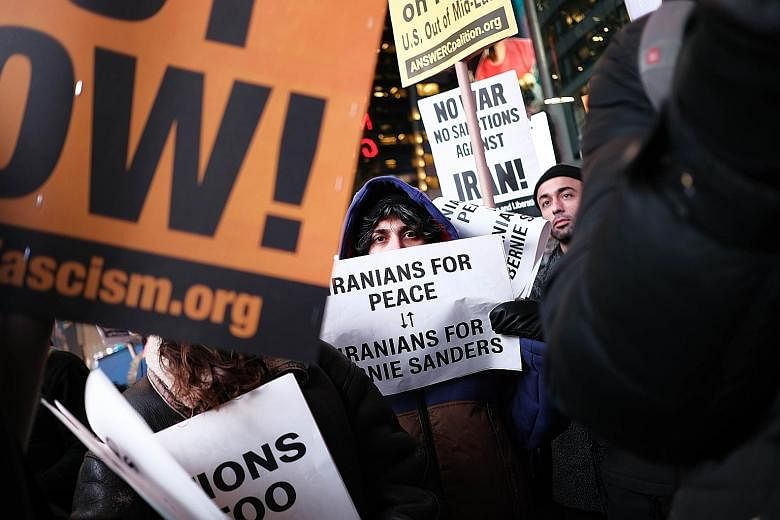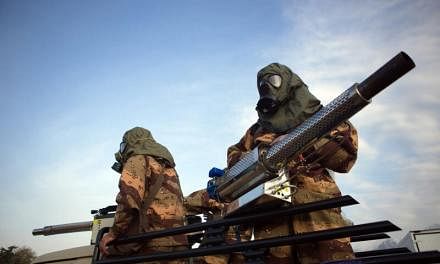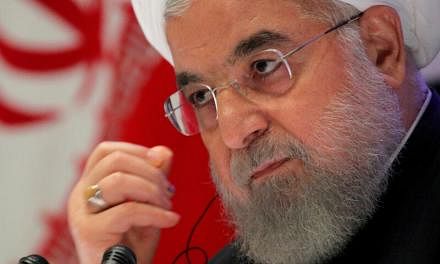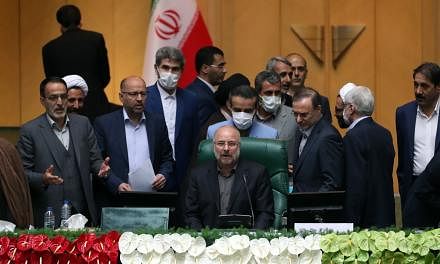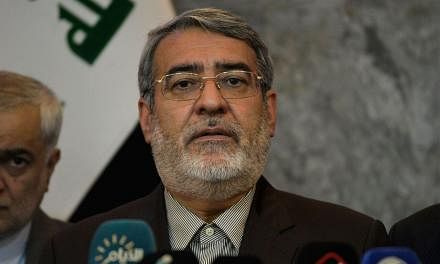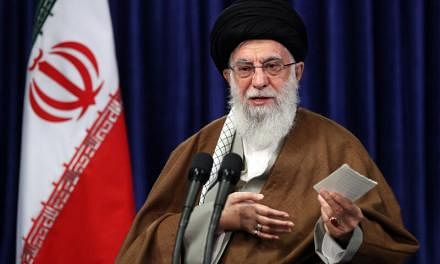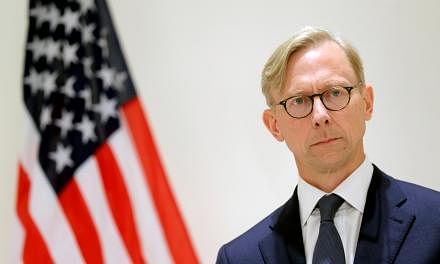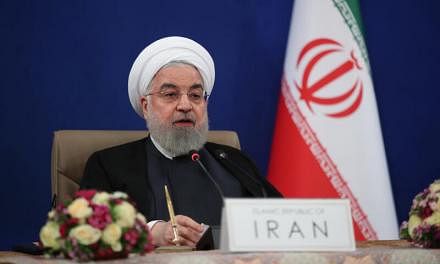BAGHDAD/WASHINGTON • Iran has spurned US President Donald Trump's call for a new nuclear pact, and a commander threatened more attacks, after both sides appeared to back off from intensified conflict following the US killing of an Iranian general and Teheran's retaliatory missile strikes.
Concern that the Middle East was primed for a wider war eased after Mr Trump gave an address on Wednesday that refrained from ordering more military action. But each side's next move in their protracted shadow war was unclear.
Iran's UN ambassador Majid Takht Ravanchi said Teheran could not trust any idea of dialogue when Mr Trump was threatening to intensify the "economic terrorism" of sanctions, the official news agency Irna reported.
Iran's powerful Revolutionary Guards also issued new threats to the US, with senior commander Abdollah Araghi warning of "harsher revenge soon", following the missile strikes, Iranian media reported.
The new head of Iran's Quds Force, which overseas its foreign military operations, said he would follow the course pursued by his predecessor Major-General Qassem Soleimani, who was killed by a US drone strike last Friday.
"We will continue in this luminous path with power," Brigadier-General Esmail Ghaani said.
Yesterday, British Prime Minister Boris Johnson urged Iran's President Hassan Rouhani to end the confrontation with the US and underlined London's commitments to Teheran's nuclear agreement, Downing Street said.
Mr Johnson "called for an end to hostilities" and said Britain viewed the 2015 nuclear deal as "the best arrangement currently available to deliver on our goal of stopping Iran from having a nuclear weapon", according to his spokesman.
EU chief Charles Michel also defended the crumbling Iran nuclear deal yesterday, but warned Teheran against "irreversible acts" that would sink the accord.
Nevertheless, even as both Iran and the US edged away from a military clash in the short term, analysts caution that the conflict could very well play out in other ways in the weeks and months to come.
Iran has many proxy groups that could stir trouble for American troops or allies like Israel and Saudi Arabia, and experts remain wary of a possible Iranian cyberstrike on domestic facilities. More broadly, Iran is likely to remain focused on the goal of forcing the expulsion of US troops from Iraq.
Iran has long viewed the US presence on its doorstep, in both Iraq and Afghanistan, as a threat. And it has worked for decades to have leaders in those nations reduce or eliminate the US presence.
In the tense days leading up to the airstrikes, American officials were looking into the abyss of what a war with Iran could look like.
They say it would look nothing like any conflict this generation has witnessed.
It would be felt aboard oil tankers making their way through the Strait of Hormuz and in places as varied as petrol stations in Kansas, in hotels and public plazas in Paris, and in the mosques in the United Arab Emirates.
As budget-shattering and far-reaching as the war with Iraq has been, one with Iran would be far worse. US officials had long ago ruled out a land invasion to occupy Iran.
The country is nearly four times the size of Iraq, and its population of over 80 million would not be expected to wave the welcome flag.
What most likely would unfold are airstrikes against Iranian warships and the country's cruise and ballistic missile sites and depots, and other elements of Iran's Revolutionary Guards and its Quds Force, which Maj-Gen Soleimani led.
American warplanes and missile-firing drones could also attack oil refineries, the oil distribution network and power grids. Much harder targets include Iran's nuclear facilities, the most important of which are buried deep underground.
American officials familiar with classified war planning say the goal would not be to oust the government and take over Iran - unlike with the Taleban in Afghanistan or president Saddam Hussein in Iraq - but to cripple its military, including the Quds Force; eliminate the country's nuclear programmes; and choke off what Washington describes as Teheran's malign regional influence.
But war-gaming those events also immediately raised the potential pitfalls.
Iran can hit back, as the country demonstrated this week. It could strike Saudi Arabian oil refineries or shut down the Strait of Hormuz by sinking a tanker or two or mining the waterway. That would send the price of oil and gas skyrocketing, and hobble the global economy.
NYTIMES, REUTERS
